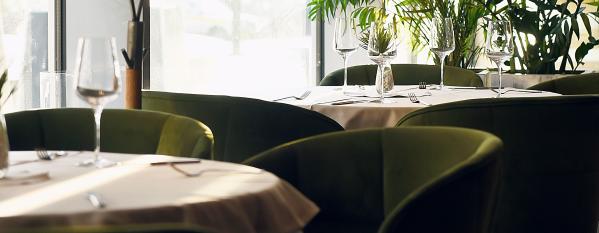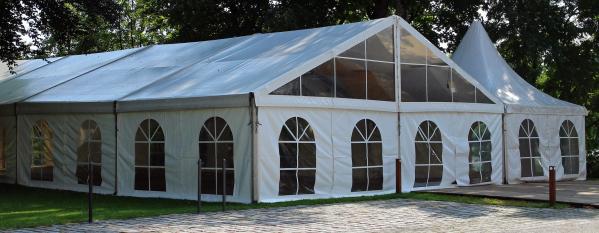Our experts help hospitality and leisure businesses with cash management and operational turnaround in order to protect the value of the company, employment, assets and goodwill.
The UK’s hospitality and leisure sector has been severely damaged by the pandemic in a number of ways, including the ‘stop-start’ nature of lockdowns. There may be a high level of pent-up demand for restaurants, bars and hotels once ‘normality’ returns. But will our old favourites still be there? Managing director, Graham Randall, one of our restructuring and insolvency specialists, reflects on what the future might look like for the sector.
Where and when will recovery begin?
The hospitality and leisure sector is one of the sectors worst affected by the pandemic – a similar picture to the impact of the global financial crisis of 2008/2009, when output dropped by 8%. It has been a very tough 12 months for the sector, across the spectrum of hotels and leisure, and food and beverage.
It is expected to recover relatively quickly though, close on the heels of the aviation sector. Their fortunes will be linked, with travel for tourism and business purposes likely to increase, when possible. However, higher labour costs might squeeze profit margins, as a result of restrictions on workers from the EU, on whom the sector is relatively dependent.
There are positive signs for domestic holidays, which have benefited from international travel restrictions. As a result, this subsector has started to recover a little earlier than others. The vaccine roll-out will drive recovery of the ‘staycation’ market too. But demand for international travel isn’t expected to return until at least the second half of this year, and it isn’t looking particularly promising at the moment.
Consumers are of course concerned about job security and higher levels of personal debt, which could result in a longer-term reduction in discretionary spending. However, we might see an initial spike in spending when restaurants reopen and people start going out again, because it’s been so long since we were able to do so. This will affect all parts of the leisure sector.
The impact of working from home
The rise of the ‘working-from-home’ business model will lead to a renewed demand for pubs and restaurants in rural and coastal locations, while there will probably be a fall in demand for city-centre pubs and casual dining venues. The working-from-home model is leading to more of an interest in local venues; people just want to be able to walk to their local pub or restaurant.
Pwc’s UK Hotels Forecast indicates that UK-wide hotel occupancy rates will be around only 55% this year, so hotels are going to be half empty. Demand for hotel space in London will be weak (52.4% according to Pwc’s forecast). This is likely to continue to be the case as more and more businesses adopt the working-from-home model.
Fewer businesspeople will be going to cities such as London and staying overnight. Fewer holidaymakers will be booking city breaks too – they’ll be heading to the countryside, the coast and other open areas where there are not so many people around.
Open or closed?
Looking back over 2020, the ‘stop-start’ nature of trading, due to lockdowns and tier restrictions, was a really difficult issue for operators in the sector. When the Government announces that there’s going to be a lockdown and it’s coming into force in 24, 48 or 72 hours, that’s very hard for those business owners, especially as it comes on top of higher wages; increased utility costs; and the cost of buying PPE and adhering to COVID-19 regulations.
And, unfortunately, there is more bad news to come for the sector. When Government support is withdrawn, there will be a wave of distressed assets coming onto the market, in the form of pubs and restaurants which have not been able to survive. Large pub operators will also divest underperforming assets. This could lead to the bigger operators, such as Wetherspoons, buying up empty units, which would reduce diversity within the sector.
The restaurant sector was already pretty much saturated before the coronavirus, so a wave of insolvencies, CVAs and distressed sales of assets was already underway. But that trend has accelerated, due to the pandemic, which has increased the number of casualties.
The importance of financial management
So, what can businesses in the hospitality sector do to try to stave off worst-case scenarios?
One of the most important tasks is to regularly undertake short-term cash-flow forecasts, review those cash-flow forecasts against budget and adjust them as necessary, to keep a clear picture of the financial position of the business. This can make all the difference between failing and surviving, as accurate cash-flow forecasting means businesses can see problems coming and can therefore address them quickly. Potential solutions could include reducing costs, asking the bank for an extension on overdraft facilities or trying to get some leeway from creditors.
But when businesses are not producing cash-flow forecasts, trouble can suddenly creep up on them. The next thing they know is that it’s the end of the month and wages are due − but there’s not enough money in the bank to pay their staff, and very little time to do anything about it by then.
External assistance
It can be well worth it to call in an expert to help with cash management and operational turnaround. That might mean restructuring the business, which could involve refinancing or using an insolvency process – for instance extracting a business from one company and moving it to another – as a way of rescuing the viable parts of the business.
The important thing is to get experts involved at the earlier stages, when problems first arise, so they can take an operational and strategic view of the business. This would involve looking at what revenues it’s generating, where it can potentially generate additional revenues and where it might be able to increase margins.
As an indication of when to bring in external expertise, the signs are already there if a business has been making a profit, but profits are starting to decline. Very often people wait till they’re either making losses or have completely run out of cash. At that point, the chances are that something can still be done, though, even if it’s just to try to soften the landing of a business in freefall and give it the most comfortable closure possible.
The earlier businesses bring in the experts, the more options there are available. And if the experts are involved at the early stages, there will be options that do not have to involve an insolvency process. Leaving this till the business is about to go into administration is unfortunately too late.
The main thing is to protect the company, employment, the value of the company, the assets and the goodwill. So, the sooner businesses recognise they need help, the better the chance of achieving these goals.
How we can help
Our hospitality and leisure sector group has extensive experience of working across a wide variety of assignments within the sector. This includes the sale of a leisure club, the accelerated sale of hotels, handling the administration of professional sporting clubs and restructuring restaurants, bars, pubs, and club businesses.









